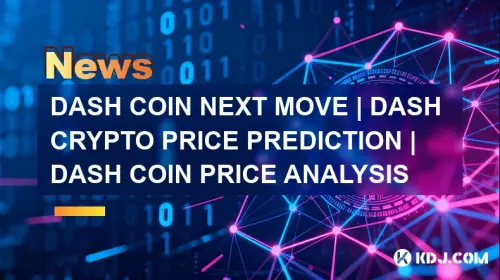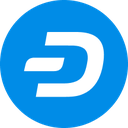-
 bitcoin
bitcoin $107015.826941 USD
-2.18% -
 ethereum
ethereum $3637.352324 USD
-5.18% -
 tether
tether $0.999831 USD
-0.02% -
 xrp
xrp $2.338078 USD
-6.23% -
 bnb
bnb $998.272150 USD
-6.97% -
 solana
solana $167.598257 USD
-10.12% -
 usd-coin
usd-coin $0.999863 USD
0.01% -
 tron
tron $0.282573 USD
-5.09% -
 dogecoin
dogecoin $0.169891 USD
-7.39% -
 cardano
cardano $0.557554 USD
-7.03% -
 hyperliquid
hyperliquid $39.914802 USD
-5.85% -
 chainlink
chainlink $15.414549 USD
-9.97% -
 bitcoin-cash
bitcoin-cash $510.361911 USD
-4.26% -
 ethena-usde
ethena-usde $0.999194 USD
-0.03% -
 stellar
stellar $0.282092 USD
-6.07%
What are the network fees on Coinbase Wallet?
Network fees on Coinbase Wallet go directly to miners or validators, not Coinbase, and vary based on blockchain congestion, transaction complexity, and chosen speed.
Oct 24, 2025 at 09:18 pm
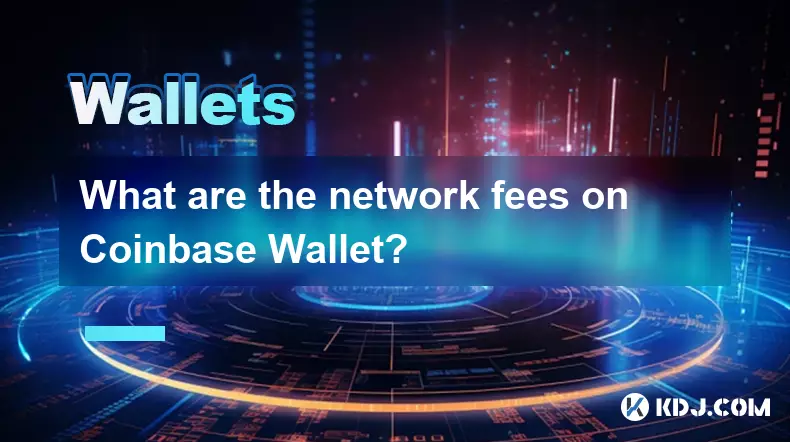
Understanding Network Fees on Coinbase Wallet
1. Network fees on Coinbase Wallet are charges users pay to process transactions on a blockchain. These fees go directly to miners or validators who confirm and secure transactions across decentralized networks. The wallet itself does not set these fees; they are determined by the underlying blockchain, such as Ethereum, Bitcoin, or Polygon.
2. When sending cryptocurrency from Coinbase Wallet, users must pay a network fee regardless of whether the recipient uses Coinbase or another service. This fee fluctuates based on network congestion. For example, during peak usage times on the Ethereum network, gas prices rise significantly, leading to higher transaction costs.
3. Users have control over the fee amount through adjustable settings in the wallet interface. They can choose between slow, medium, or fast transaction speeds, each corresponding to different fee levels. Opting for faster confirmation usually means paying a higher fee, while selecting slower processing reduces cost but increases wait time.
4. It’s important to note that Coinbase Wallet does not profit from these fees. Unlike traditional financial platforms that may add service charges, Coinbase Wallet passes all fees directly to the blockchain network. Transparency is built into the transaction process, with estimated fees displayed before confirmation.
5. Some blockchains integrated into Coinbase Wallet, like Polygon or Arbitrum, offer lower network fees compared to Ethereum mainnet. Users moving assets across chains using bridges often do so to minimize costs. Selecting the appropriate network based on fee structure can lead to substantial savings, especially for frequent traders or small-value transfers.
Factors Influencing Transaction Costs
1. Blockchain selection plays a major role in determining network fees. Ethereum historically has higher gas fees due to its widespread use and limited block space. Alternatives like Optimism, Base, or Avalanche offer similar functionality at reduced costs, making them attractive for DeFi participants.
2. Transaction complexity affects pricing. Sending simple token transfers typically costs less than interacting with smart contracts, such as providing liquidity or minting NFTs. More computational work requires more gas, increasing the total fee.
3. Time of day impacts congestion levels. Periods of high activity—often coinciding with major market movements or popular NFT drops—cause spikes in fees. Monitoring network conditions before initiating a transaction helps avoid unnecessary expenses.
4. Wallet users can view real-time fee estimates powered by third-party data aggregators. These tools analyze current mempool activity and suggest competitive rates for timely inclusion in upcoming blocks. Accuracy in estimation prevents underpayment, which could result in stalled transactions.
5. Stablecoin transfers generally incur the same base fees as other ERC-20 tokens on Ethereum. However, some protocols implement optimizations that batch multiple operations, reducing per-user cost. Awareness of such mechanisms allows informed decision-making when managing digital assets.
Managing Fees Effectively
1. Users should regularly check the active network before transacting. Switching from Ethereum to Layer 2 solutions within Coinbase Wallet can drastically cut fees without sacrificing security or compatibility with most dApps.
2. Utilizing the wallet’s fee customization feature enables strategic timing. During low-traffic hours, even “fast” confirmation fees drop substantially. Planning non-urgent transactions accordingly leads to consistent savings.
3. Always review the final fee breakdown before confirming any transaction. Hidden costs are rare, but misunderstanding denomination units (e.g., gwei vs. ETH) can lead to errors. Misconfigured settings might result in unexpectedly high payments, especially on high-fee networks.
4. Storing small reserves of native tokens on multiple chains facilitates cross-chain operations. For instance, holding MATIC on Polygon ensures users can cover future transaction fees without needing to bridge funds last-minute, which itself incurs a cost.
5. Engaging with decentralized applications that support meta-transactions or sponsored gas models can eliminate out-of-pocket fees. Though not yet widespread, certain platforms absorb fees to improve user experience, particularly in gaming or social ecosystems.
Common Questions About Coinbase Wallet Fees
Q: Does Coinbase Wallet charge additional fees beyond the network cost?A: No. Coinbase Wallet does not add markup or service fees on top of blockchain network charges. The displayed fee is the exact amount paid to the network.
Q: Can I cancel a transaction if the fee seems too high after submission?A: Once broadcasted, transactions cannot be canceled. However, users can attempt to replace the transaction with a higher fee (speed up) or zero-value gas price (cancel), depending on wallet capabilities and network rules.
Q: Why did my transaction fail even though I paid a network fee?A: Failed transactions still consume gas because computational resources were used. Common causes include insufficient gas limits, slippage in swaps, or contract reverts. The fee is charged for execution effort, not success.
Q: Are receive transactions free on Coinbase Wallet?A: Yes. Receiving cryptocurrency does not require paying a network fee. Only outgoing transactions initiate a fee, as they demand validation on the blockchain.
Disclaimer:info@kdj.com
The information provided is not trading advice. kdj.com does not assume any responsibility for any investments made based on the information provided in this article. Cryptocurrencies are highly volatile and it is highly recommended that you invest with caution after thorough research!
If you believe that the content used on this website infringes your copyright, please contact us immediately (info@kdj.com) and we will delete it promptly.
- Ripple Competitor Alert: Is Remittix the Next Top 10 Crypto Challenger to XRP?
- 2025-11-04 20:10:02
- MEXC, USDf, and Trading Volume: A Deep Dive into Recent Developments
- 2025-11-04 19:15:01
- Meme Coins and Market Dynamics: Navigating the Crypto Landscape in Late 2025
- 2025-11-04 20:10:02
- Bitcoin, Crypto, and EcoYield Bonus: Is This the Smartest Play Now?
- 2025-11-04 19:15:12
- Cardano (ADA) and Altcoin Growth: Navigating the Landscape
- 2025-11-04 19:15:12
- Solana ETF, Institutional Battle, and Western Union: A New Era for Crypto?
- 2025-11-04 20:10:01
Related knowledge
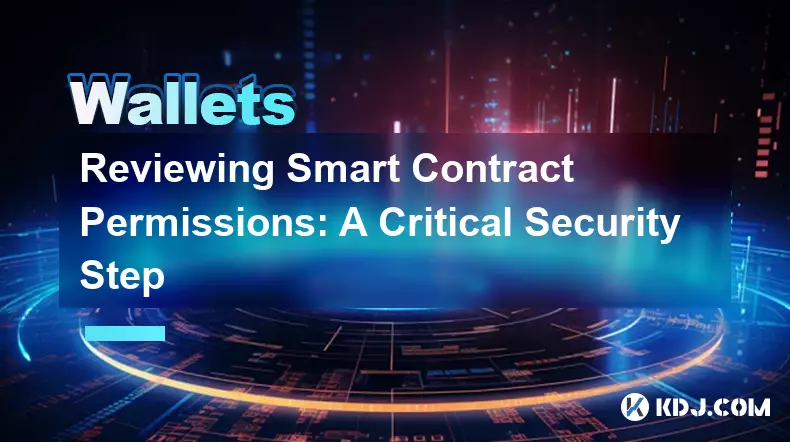
Reviewing Smart Contract Permissions: A Critical Security Step
Nov 01,2025 at 04:55pm
Understanding Decentralized Exchanges in the Crypto Ecosystem1. Decentralized exchanges (DEXs) have reshaped how traders interact with digital assets ...
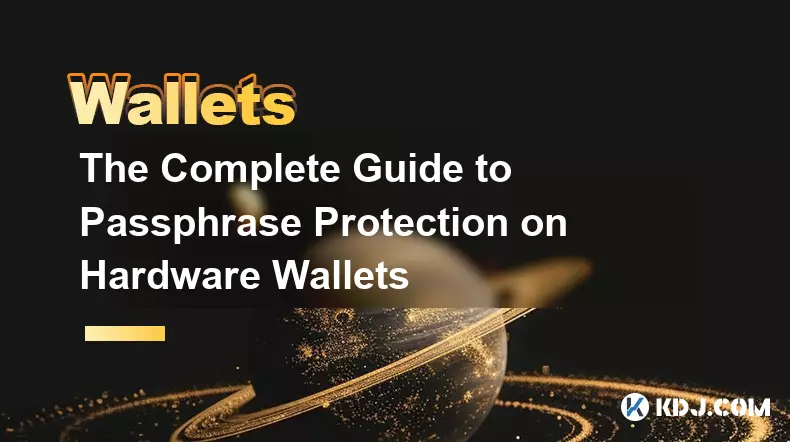
The Complete Guide to Passphrase Protection on Hardware Wallets
Nov 03,2025 at 10:37am
Understanding Passphrases in Hardware Wallets1. A passphrase, often referred to as a 25th word, adds an additional layer of security beyond the standa...
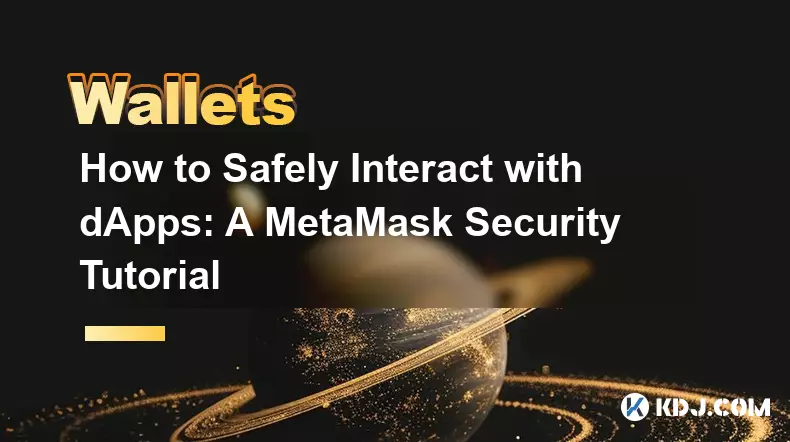
How to Safely Interact with dApps: A MetaMask Security Tutorial
Nov 04,2025 at 02:54am
Understanding dApp Interaction Risks1. Decentralized applications (dApps) operate on blockchain networks, enabling users to trade tokens, lend assets,...

Software Wallet Security Vulnerabilities You Need to Know
Nov 01,2025 at 11:37am
Common Exploits Targeting Software Wallets1. Phishing attacks remain one of the most widespread threats to software wallet users. Cybercriminals desig...
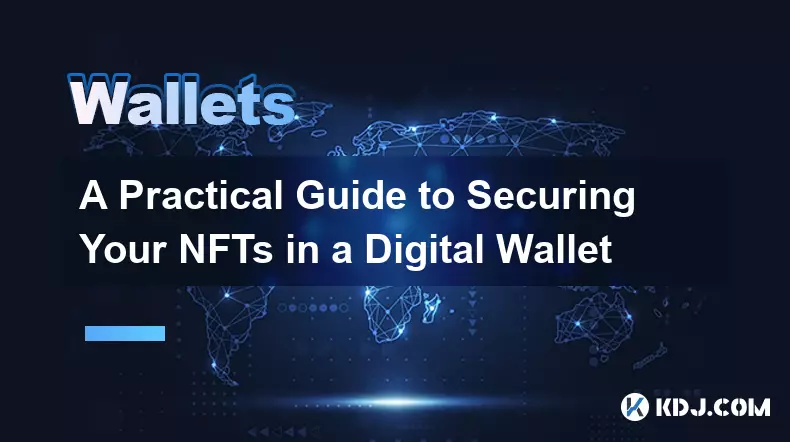
A Practical Guide to Securing Your NFTs in a Digital Wallet
Nov 03,2025 at 04:55am
Understanding NFT Wallet Security Fundamentals1. NFTs, or non-fungible tokens, exist on blockchain networks such as Ethereum, Solana, and Polygon, mak...
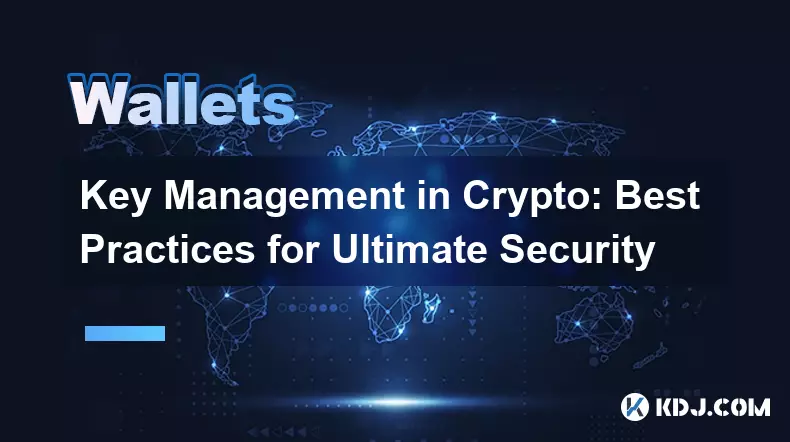
Key Management in Crypto: Best Practices for Ultimate Security
Nov 04,2025 at 05:18am
Understanding the Importance of Key Management in Cryptocurrency1. In the world of cryptocurrency, private keys serve as the ultimate proof of ownersh...

Reviewing Smart Contract Permissions: A Critical Security Step
Nov 01,2025 at 04:55pm
Understanding Decentralized Exchanges in the Crypto Ecosystem1. Decentralized exchanges (DEXs) have reshaped how traders interact with digital assets ...

The Complete Guide to Passphrase Protection on Hardware Wallets
Nov 03,2025 at 10:37am
Understanding Passphrases in Hardware Wallets1. A passphrase, often referred to as a 25th word, adds an additional layer of security beyond the standa...

How to Safely Interact with dApps: A MetaMask Security Tutorial
Nov 04,2025 at 02:54am
Understanding dApp Interaction Risks1. Decentralized applications (dApps) operate on blockchain networks, enabling users to trade tokens, lend assets,...

Software Wallet Security Vulnerabilities You Need to Know
Nov 01,2025 at 11:37am
Common Exploits Targeting Software Wallets1. Phishing attacks remain one of the most widespread threats to software wallet users. Cybercriminals desig...

A Practical Guide to Securing Your NFTs in a Digital Wallet
Nov 03,2025 at 04:55am
Understanding NFT Wallet Security Fundamentals1. NFTs, or non-fungible tokens, exist on blockchain networks such as Ethereum, Solana, and Polygon, mak...

Key Management in Crypto: Best Practices for Ultimate Security
Nov 04,2025 at 05:18am
Understanding the Importance of Key Management in Cryptocurrency1. In the world of cryptocurrency, private keys serve as the ultimate proof of ownersh...
See all articles





















